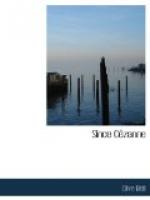And this brings me to my conclusion. Though the immediate object of criticism is to put readers in the way of appreciating fully a work or works in the merit of which the critic believes, its ultimate value lies further afield in more general effects. Good criticism not only puts people in the way of appreciating particular works; it makes them feel, it makes them remember, what intense and surprising pleasures are peculiar to the life of the spirit. For these it creates an appetite, and keeps that appetite sharp: and I would seriously advise anyone who complains that his taste for reading has deserted him to take a dip into the great critics and biographers and see whether they will not send him back to his books. For, though books, pictures, and music stand charged with a mysterious power of delighting and exciting and enhancing the value of life; though they are the keys that unlock the door to the world of the spirit—the world that is best worth living in—busy men and women soon forget. It is for critics to be ever jogging their memories. Theirs it is to point the road and hold open the unlocked doors. In that way they become officers in the kingdom of the mind, or, to use a humbler and preferable term, essential instruments of culture.
OTHON FRIESZ
Friesz is a painter who has “come on” visibly since the war. He has drawn right away from “the field” to join those leaders—Matisse, Picasso, Derain, Bonnard, shall we say, with one or two more in close attendance—a cursory glance at whom, as they flash by, provokes this not unprofitable exclamation: “How different they are!” Apparently, amongst the chiefs, that famous movement no longer counts for much. Look at them; to an eye at all practised these artists are as unlike each other as are hounds to the eye of a huntsman. Certainly, they all owe something to Cezanne: but what other important characteristic have they in common which they do not share with the best of the last hundred years? It was ever thus: the best, who are all alike in some ways, in others are, from the first, the most sharply differentiated simply because they are the most personal. Also, as they mature they become more and more peculiar because they tend to rely less and less on anything but themselves and the grand tradition. Each creates and inhabits a world of his own, which, by the way, he is apt to mistake for the world of everyone who is not maliciously prejudiced against him. And Friesz, whose character and intelligence are utterly unlike those of his compeers, is now, naturally enough, producing work which has little in common with that even of Matisse—




